Table of Contents
Remembering Bud Powell, born on this day in 1924.
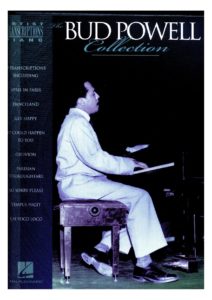
In the same way that Thelonious Monk managed to illuminate the modern jazz scene through compositions not subject to any specific model, Bud Powell (New York, September 27, 1924 – New York, July 31, 1966), dictated the fundamental keys of the new piano language without the need to cling to palpable references. Even today, he constitutes the unsurpassed technical summit of bebop piano and is remembered as the most influential musician of this movement, after Charlie Parker, but ahead of all others, including Dizzy Gillespie.
Best Sheet Music download from our Library.
His childhood was saturated with music, his older brother played the trumpet and violin professionally and his grandfather, Zachary, was the best flamenco guitarist in the United States. His father, a pianist assigned to the “stride” style, supported his early vocation and gave him his first classes.
Bud Powell’s progress was spectacular and at that time, it was common to see him perform Bach compositions and other classics with his friend, Elmo Hope. It was not until 1939, when Powell, got his first important contract with the “Sunset Royals” of the singer, Valaida Snnow, and in 1939 he recorded his first album titled “Reverse The Changers” for the “Duke” label and under the leadership of saxophonist, Frank Sokolov.
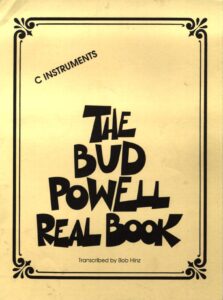
It was not until 1944, when encouraged by Thelonious Monk, he joined Cootie Williams’ orchestra and recorded a very brief solo on “Blue Garden Blues”, the first real example of his colossal talent. That same year he suffered his first arrest for public scandal, and the following years he received a brutal beating from the Philadelphia police that presumably left him forever affected. His mental disorders reproduced, and he was sent to a Long Island Psychiatric Hospital.
Please, subscribe to our Library.
If you are already a subscriber, please, check our NEW SCORES’ page every month for new sheet music. THANK YOU!
In 1946, recovered, he joined the small combo of the double bassist, John Kirby, and by chance this small group was hired at Minton’s Playhouse in Harlem, the “temple” of bebop where Powell came into contact with the leadership of that movement. , which allowed him to participate between 1946 and 1947 in a good number of jam sessions with Dexter Gordon, Jay Jay Johnson, Sonny Stitt, Kenny Clarke and Sarah Vaughan, among others.
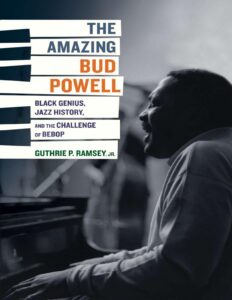
His debut as a leader came on January 10, 1947, for the small Three Deuces label, and in May of that year, he recorded the only studio record for the Savoy with Charlie Parker. A long two-year hiatus, spent mostly in the “Creedmore Sanatorium”, where he even received electroshock treatment, gave way, paradoxically, to his most fertile and artistic period. Starting on August 8, 1949, under the supervision of Alfred Lion and Francis Wolf, Bud Powell left in the coffers of the Blue Note label another vision of modern pianism perfectly compatible with the one that Thelonious Monk had contributed just two years earlier.
Once again admitted for seventeen months in another Psychiatric Hospital, when he was discharged in February 1953, he formed a stable trio with the double bassist, George Duvivier, and the drummer, Art Taylor.
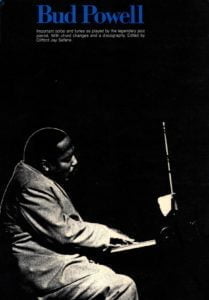
On May 15, 1953, a historic event occurred in the professional life of Bud Powell. Along with Charlie Parker, Dizzy Gillespie, Charles Mingus and Max Roach, he participated in a massive concert held at Massey Hall in Toronto, Canada, considered the swan song of bebop and perhaps the best jazz concert of all time. From then on, Powell began to enter a phase of profound, almost irreversible mental deterioration, but in 1956 he toured Europe with Miles Davis, Lester Young and Milt Jackson’s Modern Jazz Quartet. He visited the old continent again in 1959, but this time he stayed for five years. Altevia Edwards, better known as “Buttercup”, accompanied him and chose Paris as his place of residence.
Awarded the honors of a jazz great, he formed a regular trio known as the “Three Bosses” with double bassist, Pierre Michelot, and drummer, Kenny Clarke, who were the main attraction at the Parisian club, “Blue Note.” It was an important period of his life thanks to the care provided to him by Francis Paudras, an extraordinary jazz fan and later author of Powell’s biography “The Dance Of The Infidels.” But suffering from acute tuberculosis, unable to give up drinking, and homesick for New York, Bud Powell returned to the United States. His reappearance in the legendary “Birdland” caused one of the sweet moments of his career. Seven minutes of uninterrupted applause showed that his fans had not forgotten him, but that reappearance was a cruel mirage. His last two years were spent in an apartment in Brooklyn accompanied by his daughter Celia.
Almost at the end of his life, he participated in 1965 in two concerts held at Town Hall and Carnegie Hall, the latter in honor of the tenth anniversary of the death of Charlie Parker, but on July 31, 1966 he died at the Kings. County Hospital” in Brooklyn. More than five thousand people spontaneously took to the streets to honor him and at his funeral, Barry Harris and Lee Morgan played in his honor. As Francis Paudras said: «…. Bud Powell had two personalities. One drove him to fight and overcome his problems, to play and create music. The other dragged him to self-destruction, to an absolute lack of self-respect and the latter would win the game.
In 1986, the French film director, Bertrand Tavernier, produced an extraordinary film that captures Bud Powell’s Parisian period with absolute neatness and fidelity. His film: “Round Midnight”, performed in its starring role by saxophonist, Dexter Gordon, is one of the great films related to jazz.
Bud Powell – Anthropology (1962) LIVE
Bud Powell – piano Niels-Henning Orsted Pedersen – bass Jorn Elniff – drums Live from Café Montmartre, Copenhagen, early 1962.
Bud Powell biography on Wikipedia.
Browse in the Library:
| Artist or Composer / Score name | Cover | List of Contents |
|---|---|---|
| Barber – Agnus Dei Op. 11 (full score transcribed for mixed Chorus with Organ or Piano Accompaniment) |
 |
|
| Barber – Samuel Barber The Composer And His Music (1992) by Barbara B. Heyman (Biography) |
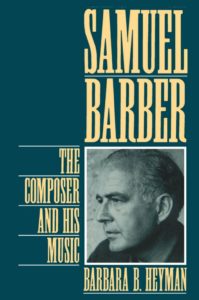 |
|
| Barber Violin Concerto (Violin and Piano sheet music) |
 |
|
| Barber Violin Concerto (Violin part sheet music) |
 |
|
| Barber_Violin_Concerto.mscz.mscz | ||
| Barber, Samuel Cello Concerto (Cello Part) |
 |
|
| Barber, Samuel Sonata For Piano, Op.26 |
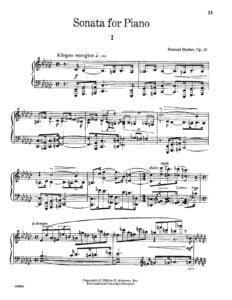 |
|
| Barber, Samuel – Sure On This Shining Night for Piano and SATB |
 |
|
| Barber, Samuel – Adagio for Strings Op. 11 Agnus Dei (solo piano arr.) |
 |
|
| Barber, Samuel – Four Songs – Nocturne |
 |
|
| Barber, Samuel – Four Songs – A Nun takes the Veil |
 |
|
| Barber, Samuel – Four Songs The Secrets of the Old |
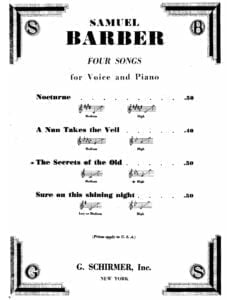 |
|
| Barber, Samuel – Summer Music |
 |
|
| Barber, Samuel Adagio for Strings full score | Samuel Barber-Adagio for Strings full score | |
| Barber, Samuel Adagio For Strings Samuel Barber (Musescore File).mscz | ||
| Barber, Samuel Agnus Dei Adagio for strings op. 11 for mixed chorus |
 |
|
| Barber, Samuel Nocturne Op. 33 |
 |
|
| Barber, Samuel Op 26 Piano Sonata |
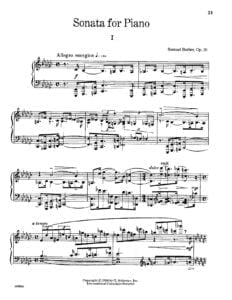 |
|
| Barbra Streisand The way we were (piano) | Barbra Streisand The way we were piano | |
| Barbra Streisand – Not While Im Around |
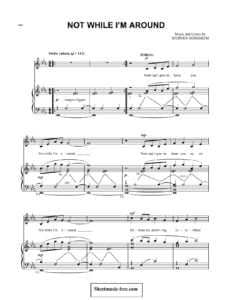 |
|
| Barbra Streisand – Evergreen | ||
| Barbra Streisand – Send In The Clowns | ||
| Barbra Streisand – The Broadway album (Piano and voice) |
 |
Streisand, Barbra – The Broadway album (Piano and voice) |
| Barbra Streisand – The Way We Were | ||
| Barbra Streisand Collection |
 |
Book Barbra Streisand Collection |
| Barbra Streisand Evergreen | Barbra Streisand Evergreen | |
| Barbra Streisand Guilty – songbook |
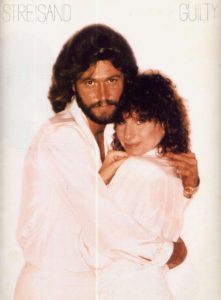 |
Barbra Streisand Guilty – songbook |
| Barbra Streisand Memories Songbook |
 |
Barbra Streisand Memories Songbook |
| Barbra Streisand My Name Is Barbra (Barbra Streisand) (Book) |
 |
|
| Barbra Streisand Somewhere From West Side Story | Barbra Streisand Somewhere From West Side Story | |
| Barcarolle (Musescore File).mscz | ||
| Barney Kessel – The Jazz Guitar Artistry Of Barney Kessel (14 original Guitar Solos) |
 |
Barney Kessel – The Jazz Guitar Artistry Of Barney Kessel (14 original Guitar Solos) |
| Barney Kessel – The Jazz Guitar Artistry Of Barney Kessel (Vol. 2 original Guitar Solos) |
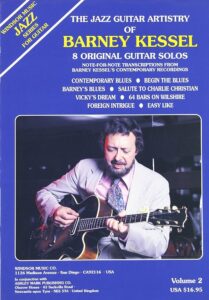 |
Barney Kessel – The Jazz Guitar Artistry Of Barney Kessel (Vol. 2 original Guitar Solos) |
| Barney Kessel Danny Boy Guitar with Tablature |
 |
|
| Barney Kessel Minor Mode |
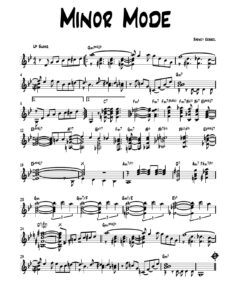 |
|
| Baroque Expressions Martha Mier from Bravo Book One (Piano Solos).mscz | ||
| Baroque Guitar Sheet Music arr. by Frederick Noad Guitar Anthology,The Classical Guitar |
 |
Baroque Guitar Sheet Music arr. by Frederick Noad Guitar Anthology,The Classical Guitar |
| Baroque Keyboard Anthology Book 1 24 Works For Piano Or Keyboard by Robin Bigwood |
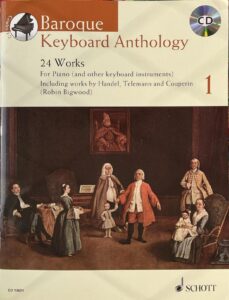 |
Baroque Keyboard Anthology Book 1 24 Works For Piano Or Keyboard by Robin Bigwood |
| Barrelhouse And Boogie Piano by Eric Kriss |
 |
Barrelhouse And Boogie Piano by Eric Kriss |
| Barry Hanks – Rhythm Changes Solo Transcription | Barry Hanks – Rhythm Changes Solo Transcription | |
| Barry Harris Approach to improvised lines & harmony |
 |
|
| Barry Harris Basics Summary Of Class Exploring the Diminished |
 |
|
| Barry Harris Donna Lee sheet music transcription |
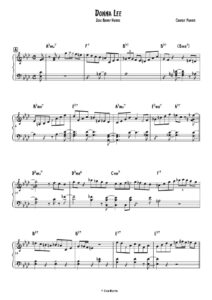 |
|
| Barry Harris Harmonic Method For Guitar, The |
 |
|
| Barry Harris Jazz Workshop Part 1 |
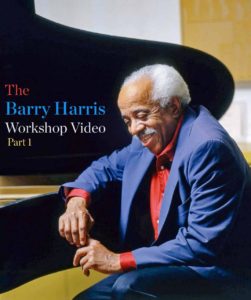 |
|
| Barry Harris Jazz Workshop Part 2 |
 |
|
| Barry Harris Method Método IMPROVISACIÓN (Español-Spanish) |
 |
|
| Barry Harris On Green Dolphin Street sheet music transcription |
 |
|
| Barry Harris’ solo on “Woody n’You | Barry Harris Woody n’You | |
| Barry Manilow – Can’t Smile Without You |
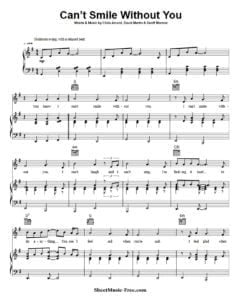 |
|
| Barry Manilow – Copacabana (At the Copa) |
 |
|
| Barry Manilow – Copacabana | ||
| Barry Manilow – Mandy | ||
| Barry Manilow – Sheet Music Anthology |
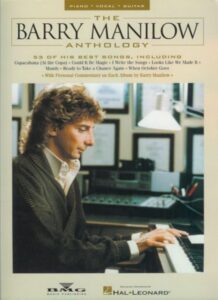 |
Barry Manilow – Sheet Music Anthology |
| BARRY WHITE – (THE COLLECTION) |
 (88) (PF)-212x300.jpg) |
BARRY WHITE – (THE COLLECTION) |
| Barry White – Loves Theme | ||
| Bart Howard – Fly Me To The Moon Guitar and TABs (Jazz Standard) | Bart Howard – Fly Me To The Moon Guitar and TABs (Jazz Standard) | |
| Bartok – For Children, Sz. 42 Complete 1 to 43 Bela Bartok |
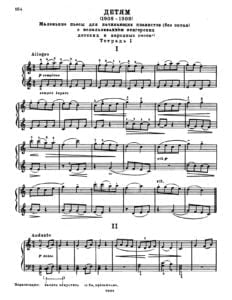 |
|
| Bartok – Improvisations op 20 Bela Bartok |
 |
|
| Bartok – Mikrokosmos (Books 1 to 6) Bela Bartok | Bartok – Mikrokosmos (1-6) sheet music |
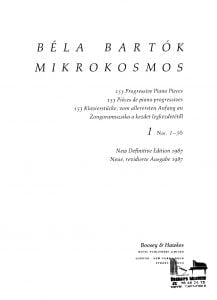 |
| Bartok – Mikrokosmos Vol. 2 Bela Bartok |
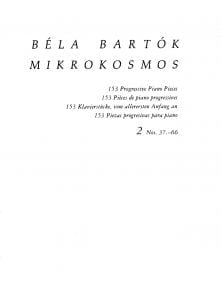 |
|
| Bartok – Mikrokosmos Vol. 4 Bela Bartok |
 |
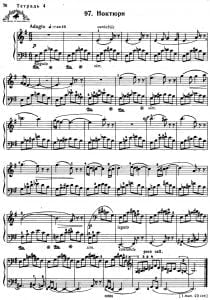 |
| Bartok – Mikrokosmos Vol.1 Bela Bartok |
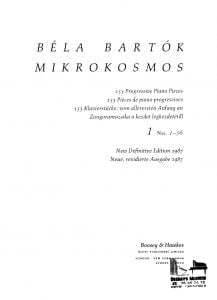 |
|
| Bartok – Sonate For Piano Solo Bela Bartok |
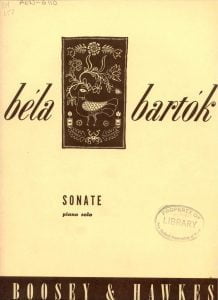 |
|
| Bartok 6 Danses populaires roumaines Bela Bartok | Bartok.-.6.Danses.populaires.roumaines | |
| Bartok For Children Book 1 Based On Hungarian Folk Tunes Piano Solo |
 |
|
| Bartok For Children Book 2 after Slovakian Folk Tunes Piano Solo | Bartok For Children Book 2 after Slovakian Folk Tunes Piano Solo | |
| Bartok Improvisations op. 20 Bela Bartok |
 |
|
| Bartok Piano Sonata Bela Bartok |
 |
|
| Bartok Ten Easy Pieces |
 |
|
| Basic Piano Library Piano Recital Book Level 1B |
 |
Basic Piano Library Piano Recital Book Level 1B |
| Bass Guitar For Dummies (eBook) |
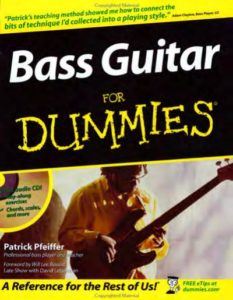 |
|
| Bass Standards (Classic Jazz Masters) Note for note transcriptions of jazz Bass classic performances |
 |
Bass Standards (Classic Jazz Masters) Note for note transcriptions of jazz Bass classic performances |
| Bastien – Piano Basics Level 1 Piano |
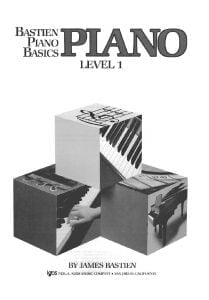 |
|
| Bastien Piano Basics – Piano for the Young Beginner Primer A |
 |
|
| Bastien Piano Basics – Piano for the Young Beginner Primer B |
 |
|
| Bastien Piano Basics – Theory Level 2 | Bastien Piano Basics – Theory Level 2 | |
| Bastien Piano Basics Level 3 |
 |
|
| Bastien Piano Basics Technic Primer Level for children |
 |
|
| Batman – Flowers Of The Past – Danny Elfman | Batman-Flowers-Of-The-Past-Danny-Elfman 1st page | |
| Batman – Sonata In Darkness Michael Giacchino | Batman – Sonata In Darkness Michael Giacchino | |
| Batman Begins – Hans Zimmer James Newton Howard Ramin Djawadi – Molossus |
 |
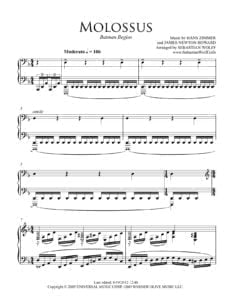 |
| Batman Returns – Birth Of A Penguin – Danny Elfman | Batman Returns – Birth Of A Penguin – Danny Elfman | |
| Battlefield 1 – Homing Pigeon | Battlefield 1 – Homing Pigeon | |
| Baywatch – Main Theme | ||
| Be My Love (Nicholas Brodszky & Sammy Cahn) Jazz Piano Solo arr. sheet music |
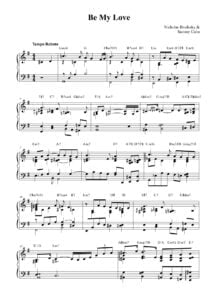 |
|
| Beach Boys Good Vibrations sheet music |
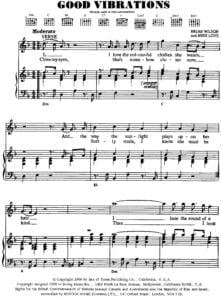 |
|
| Beach Boys The Best Of Book |
 |
 |
| Beach Boys, The – Guitar Anthology Series |
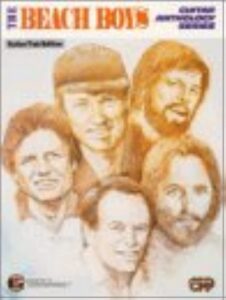 |
Beach Boys, The – Guitar Anthology Series |
| Beato Book 4.0, The – A Creative Approach to Music Theory and Improvisation for Guitar and Other Instruments |
 |
|
| Beautiful (Christina Aguilera) | ||
| Beautiful rain Soredemo Sekay | Beautiful rain Soredemo Sekay | |
| Beauty And The Beast – Alan Menken from 1991 Disney film Piano Solo |
 |
|
| Beauty And The Beast – Main Theme – Alan Menken | ||
| Beauty And The Beast (Disney) Piano Score |
 |
Beauty And The Beast (Disney) Piano Score |
| Bebo Valdes – El Manisero – Piano solo | El Manisero – Bebo Valdes | |
| BEBOP – The Music and its Players (Thomas Owens) Book |
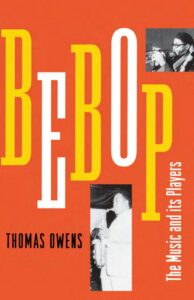 |
|
| Bebop Exercise.mscz | ||
| BeBop Jazz Piano – John Valerio – Book + MP3 audio tracks |
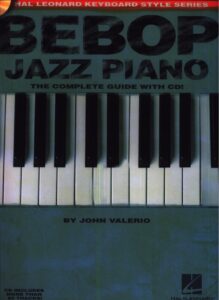 |
Bebop piano sheet music book |
| Bebop Piano Legends Artist Transciptions For Piano |
 |
Bebop Piano Legends Artist Transciptions For Piano |
| Bebop Third Ear The Essential Listening Companion (Scott Yanow) Book |
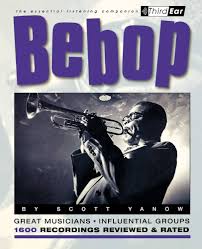 |
|
| Because – The Beatles (For String Quartet) (Musescore File).mscz | ||
| Beck – Everybodys gotta learn sometime – with lyrics |
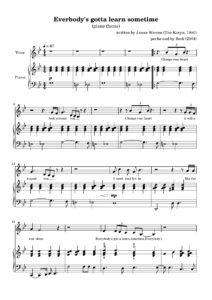 |
|
| Bee Gees It’s Easy To Play Bee Gees |
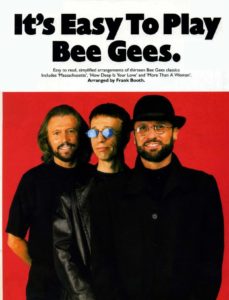 |
Bee Gees It’s Easy To Play Bee Gees |
| Bee Gees – How Deep Is Your Love |
 |
|
| Bee Gees – Stayin Alive | ||
| Bee Gees Anthology – complete songbook |
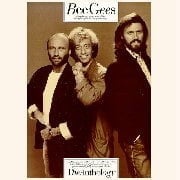 |
The Bee Gees Guitar Songbook |
| Beegie Adair Fly Me To The Moon Jazz Standard Piano Solo |
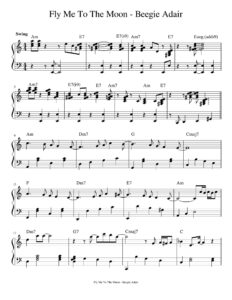 |
|
| Beegie Adair It Never Entered My Mind (Jazz Standard Transcription) |
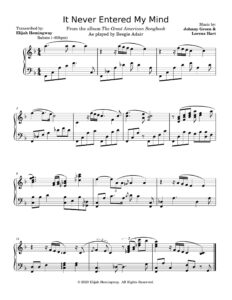 |
|
| Beethoven Ode To Joy (Jazz Version) |
 |
|
| Beethoven Piano Concerto No. 4 1st Movement Arr. For 2 Pianos |
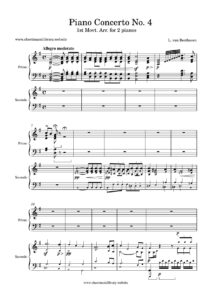 |
|
| Beethoven Piano Concerto No. 4 3rd Movement Arr. For 2 Pianos |
 |
|
| Beethoven Variations In E Flat Major Eroica Op. 35 Piano Solo arr. |
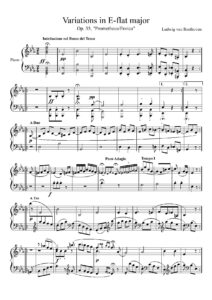 |
|
| Beethoven L.V. – Piano Sonata 15 |
 |
|
| Beethoven Piano Concerto No. 5 In E-Flat Major Emperor Op. 73 – Piano Solo (Musescore File).mscz | ||
| Beethoven – 6 Sonatinas |
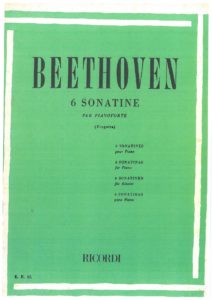 |
|
| Beethoven – A First Book of Beethoven Easy Piano arr. favorite pieces by David Dutkanicz |
 |
Beethoven – A First Book of Beethoven Easy Piano arr. favorite pieces by David Dutkanicz |
| Beethoven – Choral Fantasy For Piano Choir And Orchestra Op. 80 (Musescore File).mscz | ||
| Beethoven – Fantasia In G Minor. Op.77 (Musescore File).mscz | ||
| Beethoven – Fur Elise | Beethoven – Fur Elise |
